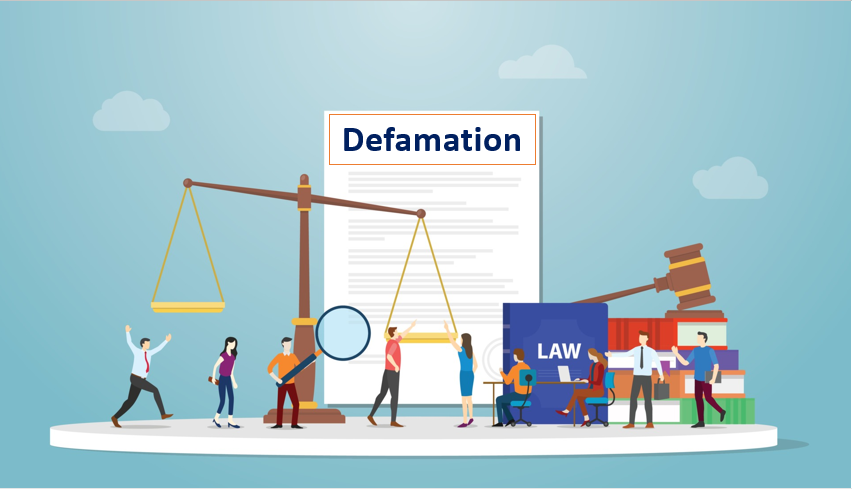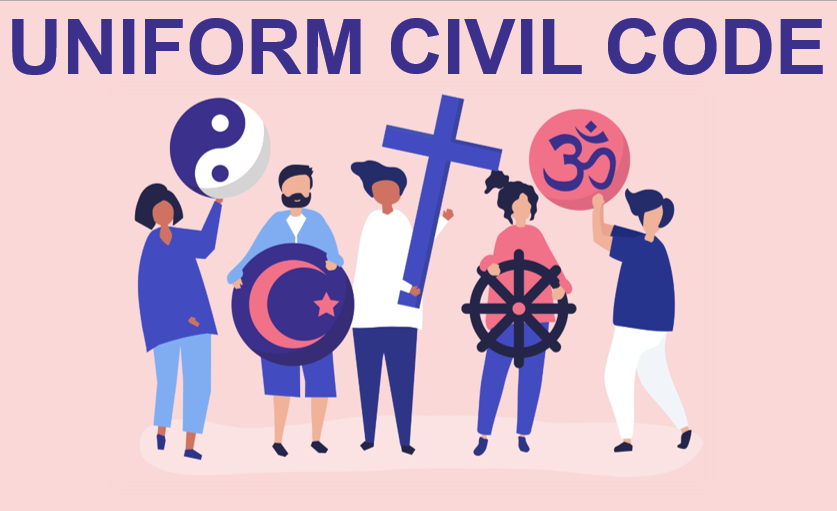Published on 31st March 2025
Authored By: Devanshi Singh
Bharati Vidyapeeth University New Law College Pune
Introduction
Standard form of contracts plays a necessary role in making agreements possible within the framework of modern commerce. Insurance, employment, and consumer goods are some sectors that rely a lot on these. Since, the forms are prepared beforehand and offered on a “take it or leave it” basis, issues of fairness and imbalance with respect to bargaining power among parties have been the subject of much concern. With that, the evolution of legal frameworks on consumer protection and unfair terms in different jurisdictions calls for a proper understanding of issues in relation to standard form agreements.
Standard form contracts are pre drafted documents meant to be signed without negotiation. Companies use them for convenience when it comes to the ease of the contracting process, as this would open up opportunities for fast, efficient transactions with a broad scope of stakeholders: consumers, employees, suppliers, etc. Their high usage is motivated by the pursuit of convenience, although they may raise vital questions in terms of equality and transparency.
Benefits of Standard Form Contracts
Their primary advantage of standard form contracts is the saving in terms of time and resources not spent on the negotiation of every agreement. This has even facilitated uniformity of approach that would help in transactions between different parties and sectors. The contracts also aid in risk reduction concerning misunderstanding resulting from clarity and applicability of the terms uniformly.
Disadvantages and Concerns
One of the main problems is that Standard form of Contracts could contain unfair terms that go against the drafters’ interests and normally represents the stronger party in the negotiation of the contract. This also gets more criticism because of the excessive and unfair terms that will harm consumers and employees. It also saves the company from any kind of liability type and comes within the terms and conditions, so, called exemption clauses. These agreements are, in most instances signed by parties without full comprehension of what is implied, hence devoid of unconscionability and absence of informed consent.
Legal Rules governing the Standard Form Contracts
Indian contract system does not separate Standard form of Contract and general contract as the standard form of contract is governed by Indian contract Act 1872 just like general contracts. Due to heavy industrial development this kind of contract has become common and are executed in large numbers now days. This had led to demands for the formulation of rules that will specifically govern the standard form of contracts in order to protect the rights of the weaker party. However, some foreign countries have evolved law which will govern the Standard form of contracts or courts of some countries have evolved some doctrines that will protect people from unfair exemption clauses. But, for example, in the USA, under section 2-302 of Uniform Commercial Code, a court has the discretion if it finds a clause of the contract unconscionable at the time it was made, to refuse to enforce the contract or to enforce the contract without the unconscionable clause.[1] In Israel, the Standard Form Contract Act 1982 allows courts to set aside unfair contract terms on unreasonable limitations of liability, unilateral change of the conditions of the contract, or transferring liability on third parties. It also deals with a prohibition on legal remedies, mandatorily binding the parties on arbitration under biased conditions, and denial of legal procedures. It also establishes a Standard Form Contract Court, consisting of a district judge and up to 12 members, including civil servants and representatives of consumer organizations, which is empowered to make appeals and give permission for specific contract terms.[2] However, as discussed above, India does not have different legislations to protect people from exemption clauses of giant cooperation’s but individuals deserve to be protected against the possibility of exploitation and hence, there are some protective devices evolved by the court:
- Doctrine of Reasonable Notice
In the first place, the person imposing the terms of the contract is under the duty to reasonably bring to the notice of other party the existence of exemption clauses. In the case of Henderson v. Stevenson[3], the terms and conditions were printed on the back side of the ticket taken by the plaintiff which left the company free from any liability concerning the loss, injury, or delay to the passenger and his baggage on the steamer but no reasonable notice of the same was given. The case arose when the plaintiff’s baggage was lost in the shipwreck due to the fault of servants. The House of Lords held that the plaintiff is entitled to recover the compensation despite the exemption clause.
- Notice should be Contemporaneous with the Contract
The notice as to terms and conditions has to be given before or at the time of the contract.
Any subsequent notice will be considered as variation of the original contract and will not impose any obligation on the other party unless he accepts it. In Olley v. Marlborough Court Ltd[4], the plaintiff had booked a room in the defendant’s hotel, and had paid the advance charges for a week. She went into the hotel room and saw a notice that reads that the owners would hold no responsibility over any lost, misplaced, or stolen articles unless those articles are left under their care. When she returned, she found that the key was gone, and some things were taken from the room. Olley brought an action. The Court ruled that Marlborough Court Ltd. pay damages. The exclusion clause was held not to have been incorporated upon making the contract since the contract was made upon reception and the notice excluding liability did not come to the plaintiff’s attention at all until after the contract had been made.
- Principle of Fundamental Breach
This doctrine was added in order to control unreasonable consequences of wide exemptions clauses even if adequate notice of the terms and conditions in the document are given by the party imposing conditions. They may not be relied upon if the party imposing those conditions committed a breach of contract which was fundamental. Since, every contract has a core or fundamental aspect and if that part is not formed by the party, they cannot take the advantage of the exemption clause as contract us not performed fundamentally. In the case of Alexander v. Railway Executive[5], the plaintiff dropped his luggage at a train station’s parcel office and received a ticket after paying the standard fees. The ticket had conditions, one of which released the Railway Executive from any liability for mis delivery or loss of goods valued at more than five pounds unless a special charge was paid. The defendants allowed the another person to take plaintiff’s luggage with him. The plaintiff instituted an action against the defendants, pleading reliance on the exemption clause. The Court held it was the executive’s responsibility to look after the deposited articles and the failure on their part to prevent an unauthorized person from taking away the luggage was the basic breach of contract. Therefore, they cannot use exemption clause to exempt themselves from liability.
- Strict Construction
This doctrine shows that the exemption clauses shall be interpreted strictly in light of all facts and circumstances of the contract but if any ambiguity is there in exemption clause it is to be resolved in favour of weaker party. In Hollier v. Rambler Motors[6], Rambler Motors had fixed plaintiff’s car three or four times within course of five years. In each of the incidents, Hollier signed a statement proclaiming that the garage was not responsible for any damage caused on the premises due to fire at least once. This occasion, when he went there for repairs, he had an oral agreement of the repairs which were to be done. He did not sign the paper on that occasion. He therefore had his car damaged by fire, and he instituted an action for negligence against the defendants. The Court held that three to four times in five years does not mean that the exclusion clause was incorporated into the oral contract.
- Test of liability in torts
Even when the exemption clause is exhaustive enough to conclude all kinds of liability in contract, it may not exclude liability in torts. In White v. John Warwick and Company Ltd[7], the plaintiff hired a bicycle from John Warwick & Co. Ltd., the defendants agreed to keep it in running condition. The contract had a clause that exempted the defendant from liability for any personal injuries. Tom was riding the cycle, and the saddle tilted forwards due to which he fell and got injured. In this judgment, the Court held that John Warwick & Co. Ltd. can be exempted from liability in contracts but cannot be exempted from liability arising in torts due to negligence.
- Unfair terms
This is a protection which aims to eliminate unconscionable clauses from the contract. A term is said to be unfair if it is against public policy or if it defeats the intrinsic purpose of the contract. In the matter of Lilly White v. R. Munuswami[8], the plaintiff gave the defendant a new saree and a shirt to dry clean. It was on the laundry receipt that if an article lost the consumer could collect only fifteen percent of its market worth. The plaintiff’s saree well went missing. The plaintiff brought a case against the defendants, and the Court ruled that the provisions are unenforceable since they violate public policy and principles of law of contract.
Current Trends and Future Directions
The drift of the prevailing tendency remains towards more robust frameworks for consumer protection, inspired by the debates on the fairness and transparency of standard form contracts. Bottom-line safeguards continue to evolve into greater disclosure requirements and the use of judicial scrutiny. With the development of e-commerce, most online purchases rely on “clickwrap” contracts, in which a user accepts some agreement simply by clicking an acceptance button. Challenges are made regarding such agreements as to whether there is valid acceptance of the consumer, and that has meant an increasing concern about whether the terms are available and readable prior to acceptance. Looking forward, it is likely that companies will be expected to pay increasing attention to the ethical aspects of standard form contracts. Changing and maturing social values are likely to place increasing pressure on business to consider whether their contracts reflect corporate social responsibility, both in terms of the fairness of their contract terms and the consequences such terms may have for vulnerable groups. Indeed, those companies able to address such issues proactively are set to engender greater trust from those purchasing their goods and services.
Conclusion
The legal landscape of the standard form contract is in constant evolution, with the increasing scrutiny and consumer protection at the forefront of debate. All of the stakeholders in relation to standard form contracts will need to be watchful that the gains of efficiency are not bought at the expense of fairness and transparency. In that respect, in moving forward, a balance must be struck between the advantages of standardized agreements and the requirements of treating the parties thereto fairly. It will again be important here for companies to invest in legal compliance, consumer education, and the integration of new technologies. The companies that are visionary, embracing these developments, will be those likely to thrive in modern and complex contracting environments.
References
[1] Uniform Commercial Code, Section 2-302 (USA)
[2] Standard Form Contract Act, 1982 (Israel)
[3] Stevenson v. Henderson [1873] SLR 11_98
[4] Olley v Marlborough Court Ltd [1949] 1 KB 532
[5] Alexander v North Eastern Railway Co [1865] 6 B & S 340
[6] Hollier v Rambler Motors (AMC) Ltd [1972] 2 QB 71
[7] White v John Warwick [1953] 1 WLR 1285
[8] Lilly White v. R. Munuswami AIR 1966 MADRAS 13


